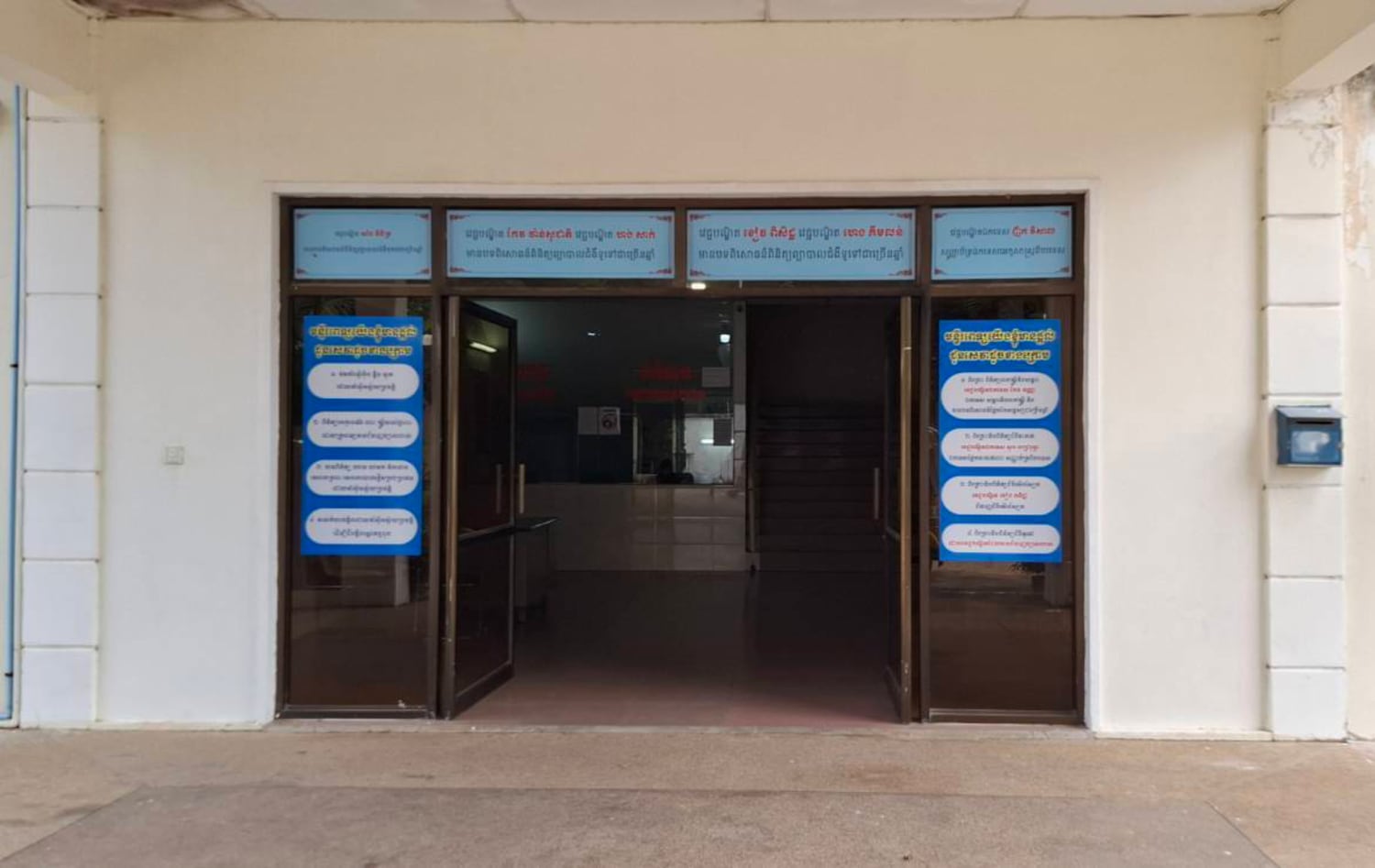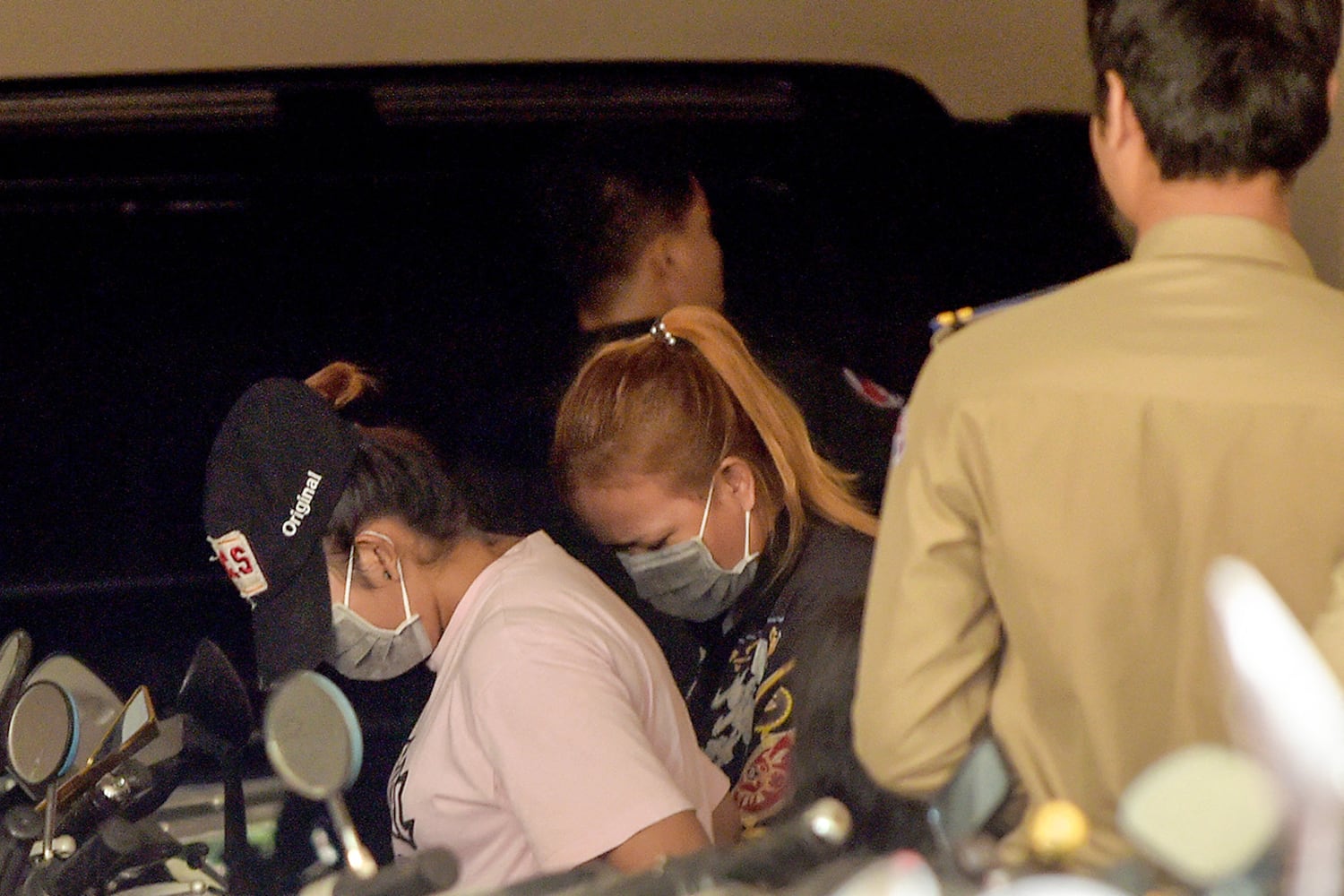A Filipina woman who gave birth to a baby in Cambodia was found guilty of human trafficking a day later for working as a commercial surrogate, raising questions about the fate of the mother and baby, Radio Free Asia has learned.
This woman is one of them A group of 13 Filipino pregnant surrogate mothers He was arrested in September and placed under police supervision at a hospital in Phnom Penh.
The RFA revealed that several of them could give birth within weeks, with one pregnant with twins.
This is the first case in Cambodia in which a foreign woman has been convicted of acting as a commercial surrogate mother, hinting at the possibility of a wider transnational operation.
RFA learned that the women were housed at Phnom Penh’s 16 Ouksaphea Hospital in shared rooms but not crowded in the well-ventilated public hospital.
The new mother, who gave birth on December 1, has so far been able to stay with her baby boy and there are no immediate plans to move her to a prison facility, Radio Free Asia has learned.

The women are able to interact with each other inside the hospital and receive food and other supplies from the Philippine Embassy in Cambodia, but they are under the custody of the prison department of the interior ministry and have no contact with other women, according to people familiar with the matter.
Hospital officials could not be reached for comment, but Interior Ministry prison department spokesman Kheang Soknadin confirmed they were still under the hospital’s supervision in accordance with the court order.
On December 2, the Kandal Provincial Court sentenced all 13 people to four years in prison, suspended for two years, for violating Cambodia’s Anti-Human Trafficking Law.
On September 23, police arrested 24 foreign women, including 20 Filipino citizens and four Vietnamese citizens, during a raid on a villa in Kandal Province, but 11 of the women were released, reportedly because they were not pregnant. A Cambodian woman who cooked and cleaned for the group has been sentenced to six months in prison for conspiracy and failing to report a crime.
The women are believed to have been recruited in the Philippines as commercial agents by a business operating illegal operations in Cambodia, but it is unclear how this recruitment took place or whether the women were aware of the legality of their situation. .
However, Cambodian law prosecutes surrogate mothers who are deemed to be selling babies, a form of human trafficking.

Since the verdict, the Philippine government has said they will treat babies born to surrogate mothers as Filipino citizens, but the final decision on the child’s nationality falls to their Cambodian counterparts.
The Justice Department identified an agency in the Philippines that recruited the women to serve as surrogates, but officials did not name the agency.
After Thailand outlawed commercial surrogacy in 2015, Cambodia became the center of commercial surrogacy.
Since then, such cases have been rare and only involve Cambodian surrogates, although foreigners have also been convicted of helping run them.
In July 2018, 33 Cambodian women were arrested for being surrogates to Chinese parents, but all were later released on probation. agree To save the child they were carrying. Five other people were also convicted For running or helping a surrogacy ring.
Cambodian women were recruited at the time, often as garment workers, seeking relief from backbreaking work and the promise of $10,000 to pay off family medical debt. According to media reports.
November. November 2018 Pregnant The agent was arrested, and after He was also released after agreeing to keep the baby.
Cambodian surrogate mothers are reportedly being held in the same hospital, which primarily serves law enforcement officers and their families. media reports.
The Philippine Embassy declined to comment on the women’s current conditions or say what might happen to the babies. The Philippine Justice Department did not respond to a request for comment. Under Philippine law, DOJ officials Tell The Philippine Star said the women would be considered victims of human trafficking.
Edited by Abby Self and Paul Deng.

